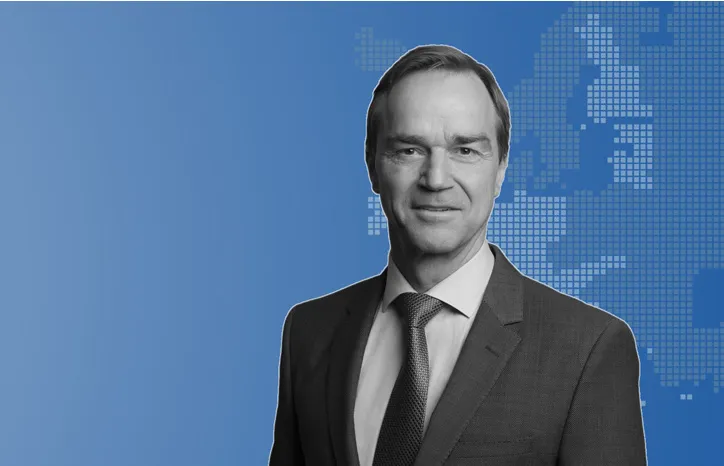Fiscal policy and long-term growth: challenges in a new normal

Rolf Strauch, ESM Chief Economist
“Fiscal policy and long-term growth: challenges in a new normal”
Eurofi Magazine, September 2023
Eurofi Financial Forum, Santiago de Compostela
Ample fiscal support at the national and European levels and accommodative monetary policy helped the euro area overcome the recession stemming from the Covid-19 crisis. Still, the pandemic severely impacted supply chains, generating substantive inflationary pressures. The war in Ukraine, a tragedy itself, also exacerbated these pressures and knocked economic growth back down.
Energy-related support measures have helped shield citizens from excessive energy prices. But these measures also have been adding to fiscal stimulus as the European Central Bank (ECB) has been tightening monetary policy to meet its price stability objective.
The euro area now faces a difficult trilemma: containing inflation, improving public finances, and generating sustainable higher growth.
Tackling inflation is imperative. Persistent high inflation would prolong uncertainty, undermine business confidence, and thereby hamper investment and growth. The sooner inflation and inflation expectations stabilise in line with the ECB’s objective, the better it is for investment and long-term growth.
Beyond the temporary fiscal windfall from higher revenues, lasting high inflation also poses significant risks to fiscal policy. This is particularly true when inflation is driven by an external supply shock. To avoid fuelling inflation further, governments will need to carefully calibrate how they support the economy. A better alignment between fiscal policy and monetary policy is needed.
Fiscal consolidation is required to support monetary policy in its quest to curb inflation. Thus, in the short-term, energy-related support measures need to be phased out. The Eurogroup statement on the euro area fiscal stance for 2024 reflects that commitment.
But fiscal consolidation is also necessary to enhance resilience. Reducing economic vulnerabilities, not only to domestic but also to external shocks, has become crucial, as these shocks could become more severe in the future. While a coordinated approach at the EU level is crucial, it also requires solidarity across Member States to enhance the ability to overcome common shocks. Creating fiscal space is vital for the longer-term challenges to increase potential growth, face population ageing, and make our economies greener and more digital.
Next Generation EU (NGEU) plays an important role in addressing these challenges: it has an element of risk sharing, sets incentives for broader structural reforms, provides inter-regional transfers to the areas where financing is most badly needed, and supports investments in digital and green transitions.
However, NGEU is a temporary instrument that will phase out in 2026.
Against this backdrop, reducing public debt over the medium-term is essential. The increase in public debt was needed during the pandemic to help citizens and businesses. Such additional flexibility to respond to the crisis was possible because of the activation of the general escape clause that is embedded in the Stability and Growth Pact. However, this clause will be deactivated at the end of this year.
Hence, coming to an agreement on the Economic Governance Reform, i.e. the reformed Stability and Growth Pact, sooner rather than later is key. The reformed framework should be transparent, credible, and ensure equal treatment across Member States. The framework should also put more emphasis on sustainable growth, which requires making enough room for productive investment. To boost potential growth, securing high quality investments will be essential.
On average, potential growth in the euro area has been close to one percentage point lower than in the US since 2000. Around 40% of this difference is explained by a lower investment ratio in Europe and 30% is due to lower technological progress. The remaining 30% is explained by a less dynamic growth of the labour force. This means that we not only need to invest more, but also invest better.
The role of the public sector as a catalyst for private investment should become more prominent. This means attracting private investors, both domestic and foreign, to invest in innovation to boost potential growth. And here reforms, rather than investments, are the key factor.
Working on establishing a genuine European capital markets union (CMU) would be also helpful in supporting investment. It would facilitate more market-based financing and complement bank lending. An integrated market for capital would be conducive to a better allocation of capital and attract international investors as well. A deep, liquid capital market is key to the equity financing of innovation the EU needs. CMU would also make the euro area more resilient by complementing public risk sharing with private risk sharing.
So far, progress has remained disappointing. Let us hope that the Euro Summit’s recent decision to enhance CMU will provide new and decisive momentum.
Author

Contacts


